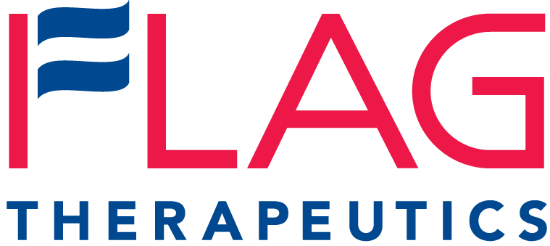
FLAG Therapeutics Gets FDA Designation for Rare Pediatric Brain Tumor Treatment

Raleigh biopharma company FLAG Therapeutics Inc. has achieved a milestone with a U.S. Food & Drug Administration designation for the company’s investigational treatment for a rare brain tumor in children.
FLAG Therapeutics said its FLAG-003 small-molecule therapy has been granted a Rare Pediatric Disease (RPD) designation from the FDA. The designation qualifies drug sponsors for priority review when applying for FDA approval to market a therapy, shortening the review time from the standard 10 months to about six months.

“Receiving Rare Pediatric Disease designation for FLAG-003 for children with DIPG [diffuse intrinsic pontine glioma] underscores the dire need for a treatment option for this devastating, fatal form of brain cancer,” said Frank Sorgi, Ph.D., FLAG Therapeutics president and CEO. “We look forward to advancing FLAG-003 into the clinic and remain steadfast in our commitment to developing solutions to address difficult-to-treat cancers.”
The designation boosts FLAG Therapeutics’ efforts to earn regulatory approval for FLAG-003, which is being developed to treat all gliomas. Gliomas can develop into malignant and sometimes fatal brain tumors. In the case of DIPG, the rare condition -- diagnosed in about 300 children per year in the United States -- is aggressive and carries a poor prognosis. There are currently no approved drug therapies for DIPG.
FLAG Therapeutics received a $50,000 company inception loan from the North Carolina Biotechnology Center in 2014, followed by a $500,000 Strategic Growth Loan. SGLs help North Carolina life sciences companies achieve specific milestones that can lead to additional funding or commercialization of their products.
In 2016, FLAG-003 was granted an orphan drug designation for both the United States and European Union.
FLAG-003 is designed to selectively target and kill cancer cells while leaving normal, healthy cells unharmed. The treatment uses two methods: anti-angiogenesis, which constricts blood vessels that support the growth of the tumor, and tubulin inhibition, which disrupts cancer cell replication. FLAG Therapeutics said its preclinical data demonstrate promising characteristics for the treatment of gliomas, including DIPG.
With the new FDA designation, the company is eligible for a “priority review voucher” if the drug is initially approved for DIPG treatment in children. The designation is important not only for speeding review, but also for its value to the company: Holders of a priority review voucher can sell or transfer the voucher to other drug developers for sums as high as $125 million under current market conditions, according to FLAG Therapeutics.
The FDA’s priority review voucher program is intended to reward research and development of drugs that might not be profitable to make, such as those for rare pediatric diseases, tropical illnesses or conditions associated with public health emergencies.
Sorgi launched FLAG Therapeutics on Flag Day (June 14) in 2013 and shortly thereafter acquired exclusive rights to the technology behind FLAG-003 from Duquesne University.
